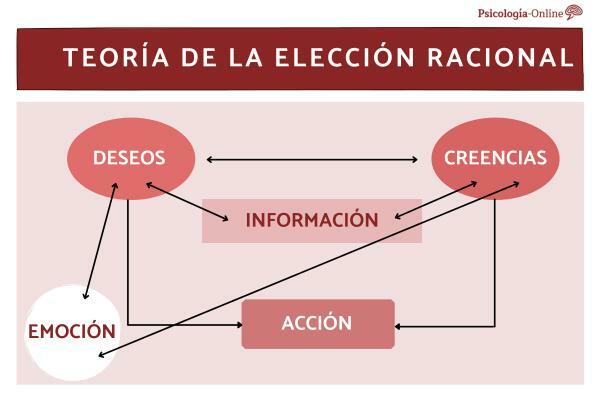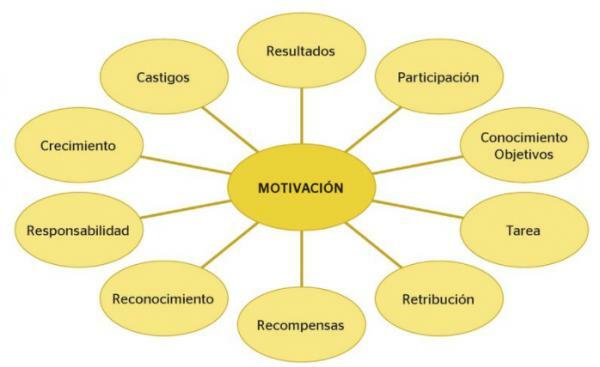
Genetic Psychology does not refer, as its name might imply, to the study of genes. This discipline focuses on the study of the genesis (hence "genetics") or origin of human behavior. Piaget is one of the pioneering authors in the development of this discipline that studies the development of human functioning.
From the Psychology-Online website we intend to bring you a little closer to the object of study of this psychological branch, its characteristics and the theoretical approach on which it is based. In this article you will find what is genetic psychology and what does it study.
The genetic psychology constitutes an integrative discipline that enables the study of the human being taking into account the interactions between the factors that influence its development: maturation, socialization, experience and development of mental structures.
Some of the questions that guide the work of genetic psychology (specifically within Piaget's epistemological theory) would be:
- Are the basic notions of the subject derived from experience, are they a priori or are they constructed?
- What is the explanatory mechanism for the constitution of knowledge?
Jean Piaget's theory of genetic psychology focuses on the clinical and empirical study of infant developmentl. Analyze how the human being interacts with the environment through its cognitive structures to develop from simpler to more complex forms, which will allow you to adapt to your environment in each of its stages evolutionary. Some important concepts in Piaget's theory are:
Mental structures
Units that make up the intellect and that vary according to age, individual differences and experience
Cognitive functions
Intellectual processes invariable and present in all people through which knowledge is acquired. There are four processes:
- Organization: categorization and coordination of cognitive structures
- Adaptation: fit to the environment
- Assimilation: incorporating new information
- Accommodation: re-adjustment, based on new information, of cognitive structures
Stages of cognitive development
- Sensorimotor (from birth to 2 years): through its sensorimotor play, the infant interacts with the environment in a reflexive way, at the beginning, carrying out coordinated behaviors at the end of the stage. Acquire the notions of object, space, time and action
- Pre-operational (2-7 years): the child begins the use of symbolic language, drawing, the first mental images, symbolic games and spoken language being typical of this stage. At this stage the notion of permanence is acquired and egocentricity is gradually abandoned.
- Specific operations (7-11 years): the first logical operations begin, always based on concrete elements of reality. At this stage the child becomes a social being. The notions of reversibility, seriation and classification are acquired.
- Formal operations (11 years and older): Throughout this stage, adolescents perform logical operations based on abstract elements. They acquire the ability to develop hypotheses and new concepts and, due to the progressive development of his personality, attitudes and moral values are integrated.
Factors involved in mental development
- Maturation of the individual
- Influence of the environment on the individual
- Exchange experience with the medium
- Self-regulation
The human being develops progressively through the different stages through the functions cognitive, conditioned by the interaction that occurs between the four determining factors of the growth. The study of how this process occurs is the main object of study of Piaget's theory.
In the following article you will find more information about the Piaget's cognitive development.
From genetic psychology, development is understood as "the set of processes and events that intervene in the changes that occur in successive stages and organizations and that reflect human growth, maturation and learning." (Velasco Fernández, R.). The object of study of genetic psychology is the study of these processes and events.
The main field of study where most of the research is carried out is the child development, trying to explain what and how happens in the mental structures of a newborn to be transformed into increasingly complex structures until reaching adolescence.
It is known that man develops through different stages in which there are basic reorganizations that must be overcome to reach the next stage. They are the so-called "central development problems" whose resolution is essential to fulfill the sequence programmed biologically for the human being. Although the laws that govern development are not known in detail, the specific problems that occur at each stage are defined.
The factors that influence this development are: maturation, the experience of exchange with the environment, the influence exerted by the social environment on the individual and self-regulation, factors that interact with each other conditioning the transit through the different stages of development evolutionary. The way in which these factors interact with each other to promote the development of the individual is the object of study of genetic psychology.
This article is merely informative, in Psychology-Online we do not have the power to make a diagnosis or recommend a treatment. We invite you to go to a psychologist to treat your particular case.


